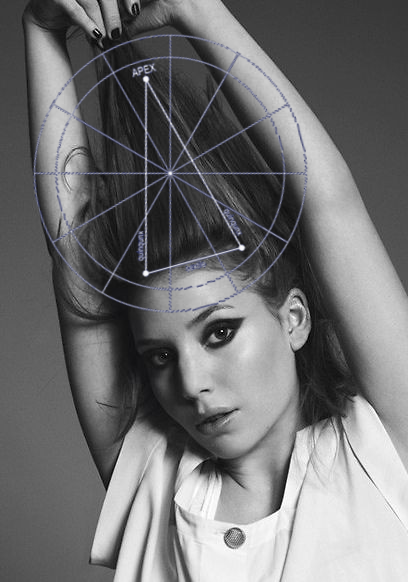
Saturn in the 4th House
 With Saturn in the 4th house of your astrological birth chart, the love you received might have been wrapped in expectations, rules, and perhaps a stiff upper lip. This can create an environment where affection is more implied than expressed. Your childhood might have felt like a never-ending winter, but you’ve developed the inner strength to keep going. You might struggle with vulnerability, preferring to keep your inner world guarded. Now, as an adult, you have the power to redefine what home and family mean to you. You can choose to invite warmth into your life, to let your heart be a place where both discipline and compassion coexist. You can break the cycle of emotional distance by being the kind of parent, partner, or friend who offers the kind of love that flows freely, unburdened by the constraints of duty. Remember, Saturn is also the great teacher, and the lessons you’ve learned in your formative years—however challenging—have given you the tools to build a life that is not only responsible but also rich with genuine connection. It’s time to take the emotional scaffolding down and let the light in.
With Saturn in the 4th house of your astrological birth chart, the love you received might have been wrapped in expectations, rules, and perhaps a stiff upper lip. This can create an environment where affection is more implied than expressed. Your childhood might have felt like a never-ending winter, but you’ve developed the inner strength to keep going. You might struggle with vulnerability, preferring to keep your inner world guarded. Now, as an adult, you have the power to redefine what home and family mean to you. You can choose to invite warmth into your life, to let your heart be a place where both discipline and compassion coexist. You can break the cycle of emotional distance by being the kind of parent, partner, or friend who offers the kind of love that flows freely, unburdened by the constraints of duty. Remember, Saturn is also the great teacher, and the lessons you’ve learned in your formative years—however challenging—have given you the tools to build a life that is not only responsible but also rich with genuine connection. It’s time to take the emotional scaffolding down and let the light in.
When Saturn is in the 4th house, it can feel like you were handed the role of the “grown-up” far too early—forced to trade in your childhood whims for responsibilities that should have come with a few more birthdays under your belt. Saturn is more concerned with duty and discipline than with cuddles and carefree afternoons. This early maturity—the need to be self-sufficient—could have made you a sort of emotional lone wolf. There’s a certain gravitas that comes with this territory, a seriousness etched into your soul. But the very burdens that weighed you down also formed in you a strength that’s as unyielding as Saturn’s rings. You’ve likely developed a fierce independence, a self-reliance that could move mountains—or at the very least, keep your world steady when everything else feels shaky. The challenge, of course, is that this inner self-sufficiency can sometimes build walls instead of bridges. The struggle lies in letting others in, in allowing yourself to be cared for, and loved in ways that perhaps you didn’t experience early on.
Now, the path ahead is one where you can reparent yourself, filling in the gaps that Saturn left behind. If you have had to grow up too fast, you now have the power to slow down and give yourself the gentleness, the kindness, and the emotional security that you deserved all along. The beauty of Saturn’s lessons is that they’re long-lasting; they’re the bedrock upon which you can build a life that is rich with the warmth and connection you may have missed in your early years. You don’t have to carry the weight of the world alone anymore. It’s okay to lean on others, to let your guard down, and to create a home within yourself. You might have dealt you a tough hand early on, but now it’s up to you to play it with a heart full of compassion—both for yourself and for the people you allow into your life.
The Shadowed Childhood
The journey from Saturn’s shadowed childhood to the light of your own making is your tale of transformation, if ever there was one. As you grow older, the weight of Saturn in the 4th house evolves. It becomes a force that drives you to build a home that stands for everything you longed for as a child. This urge to build a home of comfort and stability is more than just a reaction to your past; it’s a declaration of your intent to write a new chapter, one where the foundations are built on love, understanding, and emotional strength.
But with this deep desire for a harmonious home comes an equally deep sense of responsibility. The lessons of your upbringing, the moments where you felt you had to shoulder burdens beyond your years, have taught you the importance of taking care of those you love. Yet, this sense of duty can sometimes lead to a fear that your own emotional needs might be too heavy a load for others to bear. When you’ve spent so much time being strong—being the one who holds things together—it’s easy to fall into the trap of thinking that your struggles might become someone else’s burden. You might hesitate to fully open up, worried that the weight of your past, your fears, or your emotional troubles could overwhelm those closest to you. Your fears of somehow causing frustration or difficulty, are part of Saturn’s lessons, but they don’t have to define your present or your future.
When you grow up in an environment where emotional expression was met with cool detachment or rigid boundaries, it’s easy to internalize the idea that feelings are something to be controlled, managed, or even suppressed—rather than freely explored or shared. This can lead to an adult life where emotional expression feels risky, where there’s a lingering fear of rejection or disapproval if you dare to show the more vulnerable parts of yourself. Healing begins with the recognition that your emotional world doesn’t have to be as restricted as it once was. It might take time, and it might feel unfamiliar or even uncomfortable at first, but allowing yourself to express your emotions without fear of judgment or reprisal is key to breaking the cycle Saturn set in motion.
With Saturn in the 4th house, the father often plays a pivotal role—a figure who may have been a source of authority, yet whose presence might have also been marked by distance, absence, or a lack of emotional warmth. Whether due to literal separation, such as through death, divorce, or emotional withdrawal, the impact of this disrupted connection can reverberate through your emotional landscape. The challenge lies in how these early experiences, especially with a father figure, shape your capacity to give and receive emotional support. When the very person who should have been a pillar of strength becomes a symbol of distance or loss, it can leave you with a sense of emotional instability, a feeling that the ground beneath your feet is never quite solid.
When astrologers talk about a father who, despite being physically present and affectionate, falls short due to external factors like health issues, character flaws, or struggles such as alcoholism, we’re stepping into the realm of a deep sense of disappointment, an aching gap between what was and what could have been. This duality can be particularly challenging because it creates a confusing emotional landscape where affection and letdown coexist, sometimes even in the same breath. Imagine growing up in a household where the scaffolding of life was strong—rules were followed, routines were kept, and order was maintained—but within that scaffolding, there were cracks. These cracks might have appeared in the form of a father who, though loving, struggled with his own demons. Perhaps his health failed him, his character had flaws that made him less reliable, or his battle with something like alcoholism cast a shadow over your relationship.
This creates a situation where you might have internalized a sense of being let down. This doesn’t necessarily mean in a dramatic, overt way, but in small, persistent ways that gradually eroded your ability to fully rely on him for emotional support. The result? A deep-seated feeling that something essential was missing. Saturn often instills a sense of duty, responsibility, and order but can simultaneously create an atmosphere where emotions are kept in check, spontaneity is stifled, and the free flow of feelings is restricted. Your early upbringing might have limited your ability to experience the full range of human emotions—joy, sadness, fear, love—in an unguarded, uninhibited way.
It’s okay to recognize that while your father may have done his best, there were elements beyond his control that impacted your relationship. It’s okay to feel love for him and also feel a sense of disappointment or unmet needs. These emotions are not mutually exclusive; they’re part of life.
The Hard Childhood
Emotional isolation, physical tyranny, and financial hardship—these could symbolize the elements of your childhood, leaving behind scars that run deep and a sense of personal inadequacy. When childhood is marked by such harsh experiences, it’s easy to internalize the idea that you’re somehow not enough—that if love and support were rationed out so sparingly, perhaps you weren’t truly deserving of them. This belief, born from a time when you were too young to understand that the shortcomings of others were not reflections of your worth. The hardships of your early years were not a measure of your worth but rather a reflection of circumstances that were beyond your control. To break free from the emotional burdens that Saturn has laid upon you, it’s essential to acknowledge and release these feelings of inadequacy.
The walls you’ve built to protect yourself can become barriers to the deep and authentic connections you long for. After all, true intimacy requires vulnerability—it asks us to open up, to show our true selves, flaws and all, to another person. When we’re too guarded, when we’re constantly assessing the emotional landscape for potential threats, it’s difficult to let go and let those connections form naturally and deeply. This sense of emotional restraint can leave you feeling as if you’re always holding something back, even in your closest relationships. You might find yourself longing for a deeper bond, yet struggling to fully trust others with your innermost feelings. It’s like being on the edge of a deep pool, wanting to dive in but unable to let go of the fear that the water might be too cold, too deep, too unpredictable.
If you lived in a household where parental responsibility took precedence over spontaneous affection, the atmosphere might have been one of quiet diligence rather than joyful exuberance. The parent in this scenario—perhaps a stern father or a mother bound by the weight of their own Saturnian burdens—may have valued duty and discipline over the warmth and spontaneity of a child’s emotional world. None of these interpretations mean that love was absent; rather, it was expressed as a steady, unwavering presence—less through sentimentality and more through constancy.
Saturn in the 4th house is like an ancient tree with deep roots—strong, unyielding, and enduring. It’s a placement that instills in you the qualities of self-sufficiency, shaping you into someone who can stand firm in the face of life’s challenges. You’ve likely become a rock for others, a source of stability and reliability when the world feels uncertain. But this strength, admirable as it is, often comes with a cost: a certain emotional distance, a reluctance to fully open up and let others see the more vulnerable parts of you. Your fear of being let down by family or of feeling burdened by their expectations can add to the walls you’ve built, making it challenging to truly trust others with your heart.
The weight of Expectations
When you’ve grown up in an environment where emotional warmth was overshadowed by responsibility, or where the weight of family expectations loomed large, it’s natural to develop a cautious approach to relationships. You might find yourself holding back, wary of letting anyone get too close, lest they see the cracks in your armor or worse, let you down when you most need them. This emotional restraint can lead to a sense of numbness—a feeling that you’re not fully engaged with your own emotions, or that you’re living behind a veil of stoicism.
It’s not uncommon for someone with this placement to seek solid home of stability. When emotional needs aren’t met, there’s a tendency to compensate in material ways, to ensure that your family—your home—never feels the same sense of lack that you might have experienced. This could manifest as an almost obsessive focus on providing, whether this is through financial security, a well-maintained home, or ensuring that every physical need is accounted for. There’s a certain nobility in this, of course. You’ve taken what could have been a source of pain and turned it into a strength, channeling your energy into building a life where no one has to go without.
However, it’s essential to recognize that while building this stable base is important, it’s equally vital not to rely solely on material compensations to fill emotional voids. The most beautifully decorated home, the most well-provisioned life, can still feel empty if it isn’t infused with the warmth of genuine connection and emotional openness. So, as you dedicate yourself to building this stable, self-sustaining environment, remember that it’s not just about the physical space—it’s about the emotional atmosphere you create within it.
“My Saturn is in my fourth house: the house of the ancestors, the land, the chthonic, of things buried, of gems and caves and lava and the shades of the underworld. The fourth house is our umbilical cord, spiraling into history, into our DNA. When Saturn dwells in your fourth house, your task is to excavate the stories of your family lineage and heal them. In medieval astrology, the fourth is the house where you’d seek buried treasure. Famed astrologer Liz Greene calls the fourth house a great subterranean river moving beneath the surface of the personality. She says, “Any planet placed in the 4th points to something hidden in the psyche that must be discovered and brought to the surface before it can be dealt with constructively.” Not surprisingly, Saturn shares my fourth house with my moon. In astrology, the moon not only represents your moods and patterns in this lifetime, but also your mother and her family line. Each of us are like characters in an epic novel, spanning generations. If we do nothing to change the stories of our ancestors, they play out again and again. My task was to resolve the narrative of my family lineage. I may not like this task, but nevertheless, it was the task that had been given me. In resolving my family’s stories, I would generate new ones. Initiated: Memoir of a Witch



















 Venus Trine Pluto: Dark Desires
Venus Trine Pluto: Dark Desires
 Mars Conjunct Pluto Synastry
Mars Conjunct Pluto Synastry
 Moon Conjunct Mars Natal Aspect
Moon Conjunct Mars Natal Aspect
 Sun Square Pluto Synastry: You’ve Got That Power Over Me
Sun Square Pluto Synastry: You’ve Got That Power Over Me
 Venus-Pluto Synastry: A Love So Powerful That It Might Just Kill Them
Venus-Pluto Synastry: A Love So Powerful That It Might Just Kill Them
 Saturn in the 1st House: From Self-Doubt to Lasting Identity
Saturn in the 1st House: From Self-Doubt to Lasting Identity
 Venus Trine Mars Synastry
Venus Trine Mars Synastry
 The Scorpio Teenager
The Scorpio Teenager
 Reflections on a Past Venus-Pluto Synastry Aspect
Reflections on a Past Venus-Pluto Synastry Aspect
 Mars-Pluto Synastry: Something Quite Dark and Dangerous
Mars-Pluto Synastry: Something Quite Dark and Dangerous
 Mars in Aquarius: Sex drive
Mars in Aquarius: Sex drive
 The Yod Aspect Pattern: The Mystical Power of the “Finger of Fate”
The Yod Aspect Pattern: The Mystical Power of the “Finger of Fate”
 Emotional Understanding: Moon Trine Synastry Aspects Interpreted
Emotional Understanding: Moon Trine Synastry Aspects Interpreted
 Sun Square Pluto Natal Aspect: I Am Titanium
Sun Square Pluto Natal Aspect: I Am Titanium
 Uranus Transits: 1st House: Winds of Change:
Uranus Transits: 1st House: Winds of Change:
 Moon Conjunct Pluto Synastry
Moon Conjunct Pluto Synastry
 The Moon: The Goddess of the Night
The Moon: The Goddess of the Night
 Venus Conjunct Neptune Synastry: Euphoria and the Aftermath
Venus Conjunct Neptune Synastry: Euphoria and the Aftermath
 Pluto in Libra in the 2nd House: Lessons on Self-Worth and Financial Independence
Pluto in Libra in the 2nd House: Lessons on Self-Worth and Financial Independence
 Sun Conjunct Pluto Synastry: Enlightening or Annihilating
Sun Conjunct Pluto Synastry: Enlightening or Annihilating